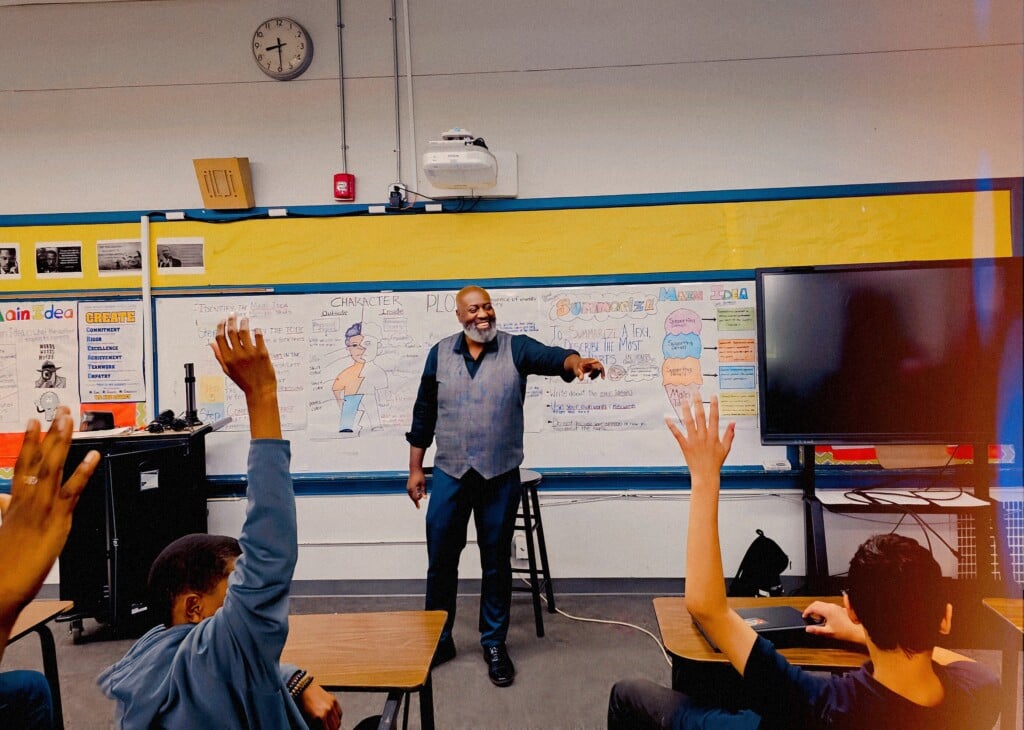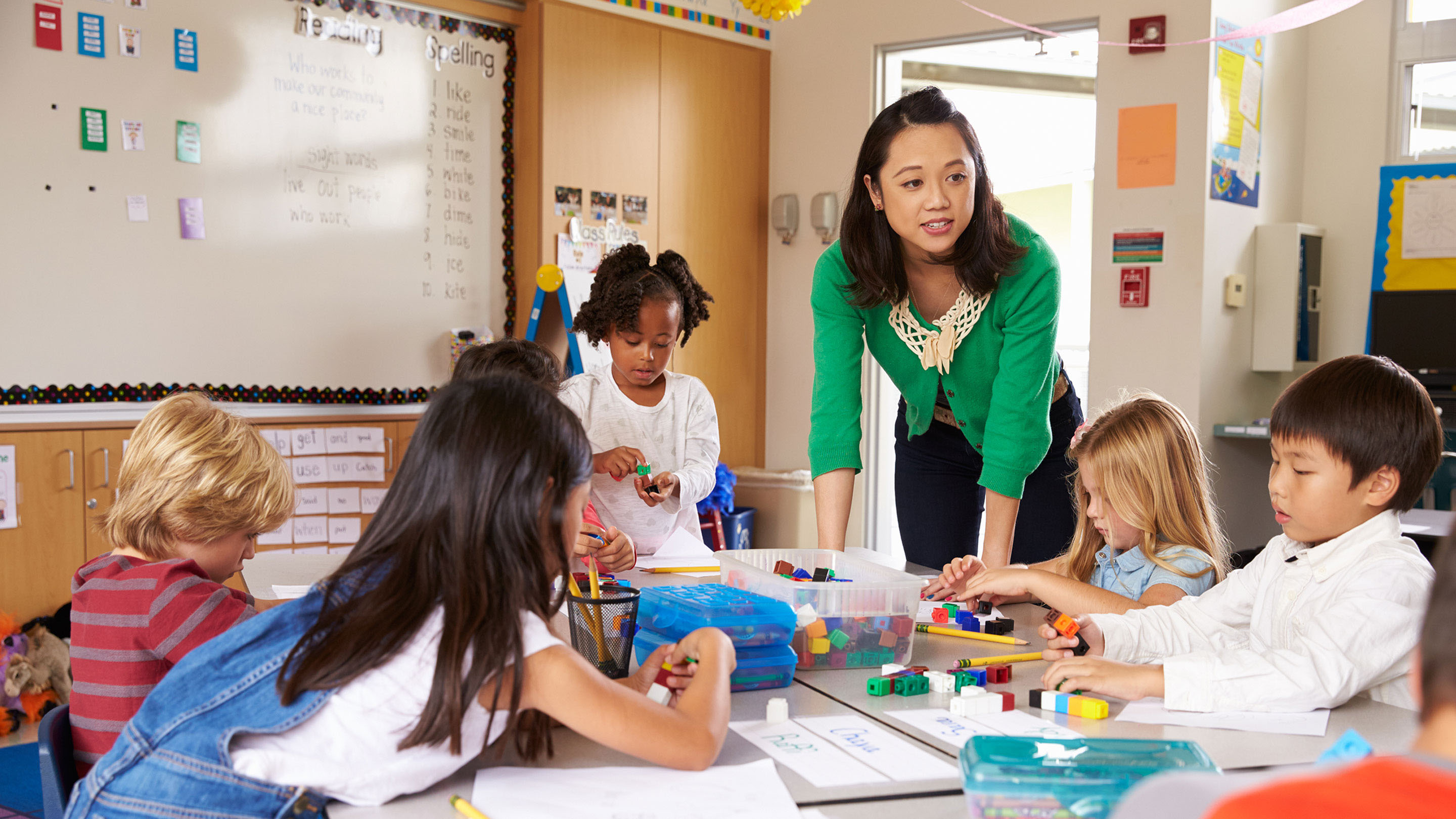Master Primary Science Concepts with Quality Tuition in Singapore
Master Primary Science Concepts with Quality Tuition in Singapore
Blog Article
Checking Out the Different Mentor Strategies in Main Scientific Research Education Today
The landscape of main scientific research education is evolving, with various training approaches gaining importance in modern classrooms. Inquiry-based discovering, hands-on experiments, and the assimilation of innovation are redefining just how teachers involve young minds. Furthermore, collaborative strategies and set apart guideline are being used to provide to the diverse requirements of pupils, improving both involvement and understanding. As we check out these methodologies, questions develop concerning their performance and the ramifications for future educational methods. What might these shifts in technique mean for the following generation of learners?
Inquiry-Based Knowing
Inquiry-Based Discovering (IBL) is a pedagogical technique that motivates students to explore scientific ideas via questioning, examination, and hands-on experimentation. This method stresses the function of trainees as energetic individuals in their knowing, advertising crucial thinking and analytic skills. By involving with real-world concerns, students end up being motivated and interested, which improves their understanding of scientific principles.
In IBL, educators serve as facilitators, assisting pupils as they browse their questions instead than supplying information directly. This student-centered approach enables for distinction, accommodating various finding out designs and rates. Trainees create abilities in developing hypotheses, creating experiments, and analyzing data, which are critical for scientific proficiency.
Additionally, IBL cultivates collaboration amongst trainees, encouraging them to share concepts and findings. This cumulative questions promotes social skills and a sense of neighborhood within the class. In addition, the process of query motivates resilience, as trainees find out to embrace failing as a tipping rock toward understanding.
Hands-On Experiments
Hands-on experiments are an important element of reliable science education and learning, matching the principles of inquiry-based discovering. These experiments permit pupils to engage directly with scientific concepts, fostering a deeper understanding with experiential learning. By manipulating materials and observing end results, young learners can comprehend abstract concepts in concrete methods.
Such activities advertise critical thinking and problem-solving abilities, as students hypothesize end results, conduct experiments, and assess results. This procedure motivates them to ask inquiries, improve their understanding, and develop a clinical frame of mind. Hands-on experiments can be customized to diverse knowing designs, guaranteeing that all students have the possibility to involve meaningfully with the content.
Furthermore, hands-on experiments commonly encourage collaboration amongst peers, advertising synergy and interaction abilities. Functioning in groups allows trainees to share ideas, review searchings for, and pick up from one another, which boosts their total instructional experience.
Incorporating hands-on experiments into the key scientific research curriculum not only enriches the learning atmosphere but also grows a long-lasting passion in scientific research. By actively taking part in their education and learning, pupils are more probable to develop an interest for clinical questions that extends beyond the classroom.

Technology Assimilation
Incorporating modern technology right into primary scientific research education has actually become progressively crucial in promoting student interaction and improving discovering outcomes. Using digital tools, such as interactive simulations, virtual laboratories, and educational software program, offers trainees with possibilities to discover scientific ideas in ingenious ways. These resources assist in a deeper understanding of intricate topics by enabling learners to visualize and adjust variables that would be unwise in a traditional class setup.
Moreover, modern technology Read Full Article integration encourages individualized discovering experiences. Students can progress at their very own speed, reviewing challenging principles through multimedia resources, which accommodate different knowing styles. This flexibility not only supports private growth however additionally cultivates a sense of autonomy in learners.
In addition, innovation acts as a bridge to real-world science, linking pupils with existing research study and professional contributions. Accessibility to clinical journals and online databases expands students' perspectives on view website clinical inquiry and fosters essential assuming abilities.
Collaborative Learning
Collective learning plays a crucial role in key scientific research education by cultivating synergy and communication abilities among trainees. This method urges learners to work together, share knowledge, and participate in problem-solving, which boosts their understanding of clinical ideas. By getting involved in team activities, students discover to express their concepts, listen to varied viewpoints, and negotiate remedies, all of which are vital abilities in both real-world and scholastic contexts.

Study shows that collective knowing can bring about boosted motivation and engagement in scientific research subjects, as trainees locate pleasure in common experiences (primary science tuition Singapore). Furthermore, this method prepares trainees for future collaborative ventures, equipping them with the abilities needed for efficient team effort in college and professional atmospheres. Eventually, welcoming collective knowing in primary scientific research education and learning can substantially improve see the knowing experience and promote a deeper understanding of scientific questions
Differentiated Guideline

Separated direction can manifest in different methods, such as differing the material, procedures, or products of knowing. Instructors may make use of tiered projects that give varying degrees of intricacy, allowing trainees to work at their corresponding readiness levels. In addition, versatile organizing techniques can facilitate cooperation among trainees with different capacities, cultivating peer knowing.
Analysis plays a critical role in this technique, as it informs instruction and assists educators comprehend each trainee's distinct demands. Formative evaluations, such as tests and monitorings, can direct teachers in changing their techniques to improve learning outcomes. primary science tuition Singapore. Eventually, by carrying out differentiated guideline in primary scientific research education and learning, educators can grow an extra efficient and fair discovering setting, empowering all trainees to reach their full possibility in understanding scientific sensations
Final Thought
In recap, the diverse mentor strategies in primary scientific research education and learning, including inquiry-based knowing, hands-on experiments, modern technology integration, collective understanding, and set apart instruction, jointly add to an extra effective discovering setting. These approaches promote critical thinking, analytical skills, and a deeper comprehension of scientific ideas. By carrying out these approaches, instructors can produce appealing and helpful classrooms that deal with the different requirements of trainees, eventually fostering a lifelong interest in science and boosting scholastic success.
Inquiry-Based Understanding (IBL) is an instructional technique that urges trainees to check out scientific concepts through wondering about, examination, and hands-on trial and error.Collective learning plays a vital duty in primary scientific research education by fostering synergy and communication abilities amongst trainees.Research shows that collective knowing can lead to increased inspiration and interaction in science topics, as trainees find satisfaction in shared experiences.In cultivating a comprehensive knowing setting, set apart direction arises as a key approach to accommodate the varied needs and capacities of trainees in key science education and learning. Eventually, by implementing set apart instruction in key science education and learning, educators can cultivate an extra equitable and reliable understanding atmosphere, encouraging all students to reach their full potential in comprehending clinical phenomena.
Report this page